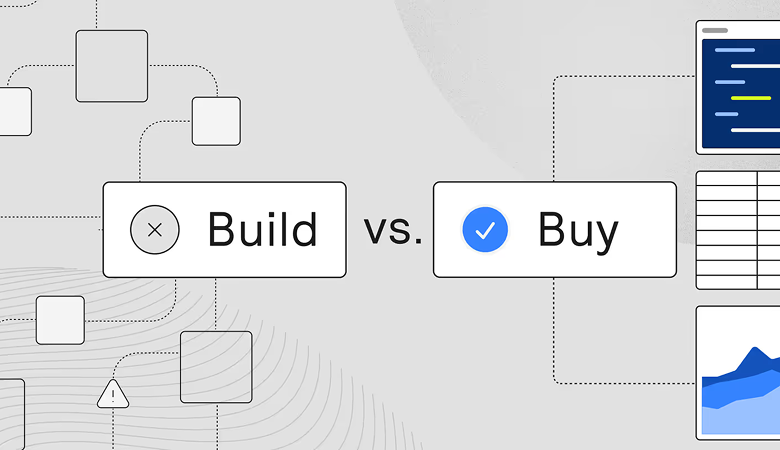For growing startups, efficient billing is key to success. A robust billing engine automates financial operations, allowing you to focus on growth. The issue is that, with so many options available, finding the right fit can be difficult.
This guide explores the 16 best billing engines for startups in 2025. We’ll highlight their strengths and weaknesses to help you make an informed decision.
Before diving into our list, let’s explain what a billing engine actually is.
What is a billing engine?
A billing engine is a software system that automates and manages billing and payments. At its core, this system is the financial heartbeat of a business. It helps make sure that invoices are accurate, timely, and tailored to your customers' needs.
Why does this matter for growing startups?
As your startup scales, so does the complexity of your billing. You're dealing with a growing customer base. You may also evolve pricing with different pricing tiers, recurring subscriptions, and international expansion.
A billing engine steps in to handle these complexities with grace and precision. It automates calculations, generates invoices, tracks payments, and provides insightful reporting. A billing engine does all of this while also adhering to regulatory requirements.
A well-chosen billing engine eliminates the need for manual intervention and reduces the risk of errors. It allows you to expand into new markets and launch new products easily. You’ll rest easy knowing that your billing infrastructure can handle the challenges ahead.
16 billing engines for startups that you should know
The billing engine you choose can make or break your startup's financial health. Here's a glimpse into the 16 choices with the most options:
1. Orb

Orb is a billing management platform that allows for easy implementation of complex pricing models. It allows you to iterate on your pricing strategy as quickly as you iterate on your product itself. Whether you're exploring volume discounts, tiered pricing, or even prepaid credits, Orb's flexible pricing models have you covered.
Real-time usage tracking and insights
Orb also provides real-time usage tracking. This feature gives you a crystal-clear view of how your customers interact with your product. The invaluable insights you get help you make decisions based on data so that your pricing aligns with customer value.
Seamless integration
Orb connects with your existing tools like Salesforce and NetSuite. It creates an ecosystem where your billing system and business applications work hand-in-hand.
Security and compliance
Orb prioritizes security and compliance. With robust measures in place, you can rest assured that your billing processes are both secure and adhere to industry standards.
2. Stripe Billing
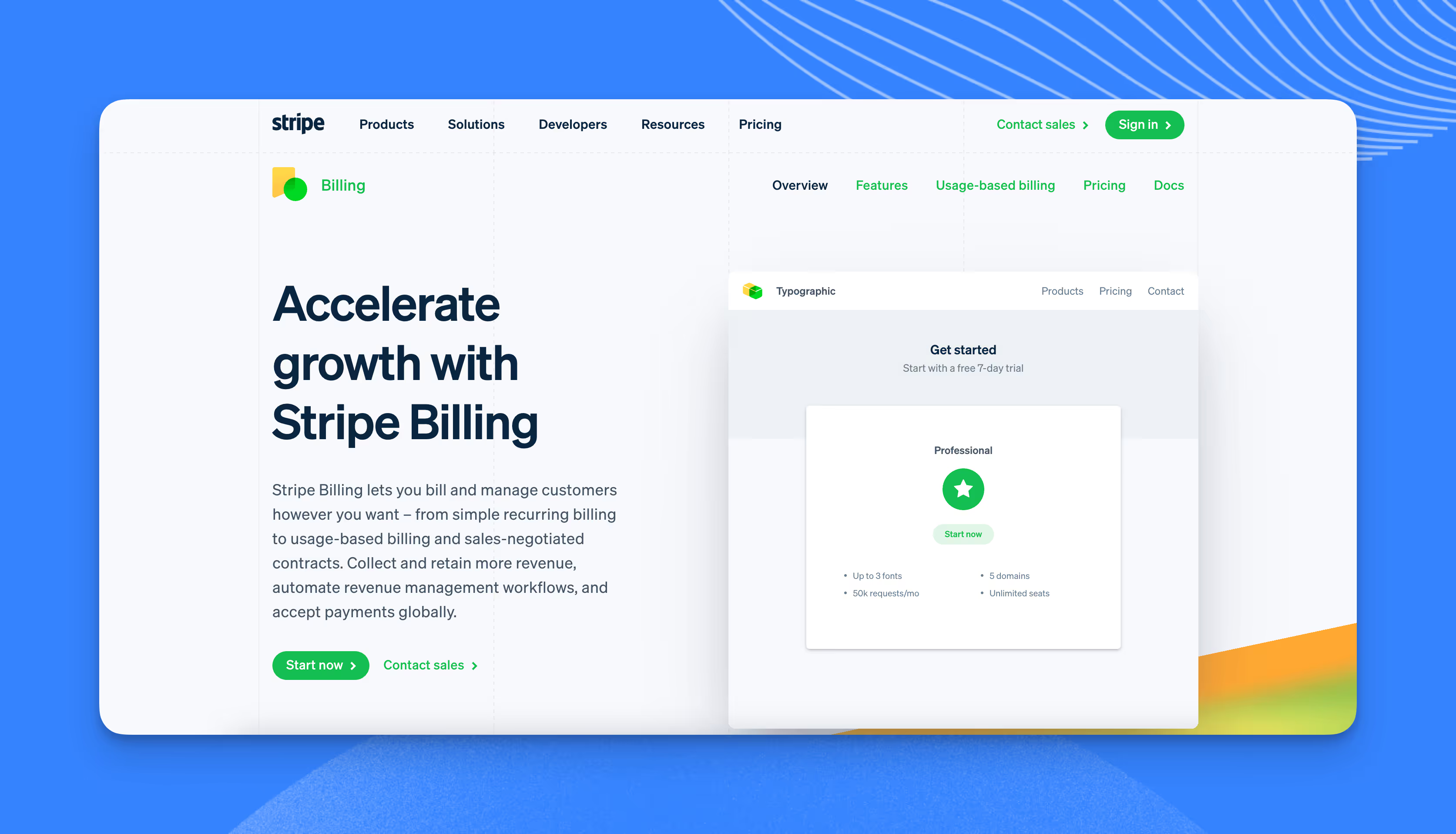
Stripe Billing is a platform designed for businesses managing everything from recurring billing to usage-based pricing within a single platform. The direct integrations with the Stripe payments ecosystem are a significant advantage.
- Pros: It’s an all-in-one solution and allows for seamless Stripe integration.
- Cons: Stripe Billing adds an additional cost starting at 0.5% of recurring transactions, which includes any recurring invoices — on top of Stripe's standard processing fees. This can make it more costly for growing startups anticipating high transaction volumes.
3. NetSuite ERP

NetSuite ERP is an enterprise resource planning (ERP) system. It provides robust billing capabilities as part of its larger suite. It’s suitable for businesses looking to consolidate their financial and operational processes. Its advanced features and scalability also cater well to larger enterprises.
- Pros: It provides advanced features, scalability, and consolidation of processes.
- Cons: It’s too complex; it has a higher price point, and it can be overwhelming for early-stage startups.
4. Zuora

Zuora is a highly customizable subscription management platform. It’s designed to handle complex subscription billing scenarios at an enterprise level. Zuora also boasts a wealth of features and integrations but comes with a higher price tag and a steeper learning curve.
- Pros: It’s got solid customization, handles complex scenarios, and supports scaling.
- Cons: This platform can be too complex, expensive, and has a steep learning curve.
5. Recurly

Recurly is a subscription management platform that prioritizes simplicity and ease of use. This fact has made it a favored choice for businesses new to subscription billing. It offers a wide array of features, including churn prevention tools and dunning management.
- Pros: It’s user-friendly and has both robust features and churn prevention tools.
- Cons: It has mixed reviews on invoice accuracy and customer support.
6. Xero

Xero is a cloud-based billing and accounting software that also provides basic invoicing features. It's a good starting point for small businesses seeking an all-in-one financial management tool.
- Pros: It’s affordable and user-friendly. It’s solid as an all-in-one financial management tool.
- Cons: The cloud billing capabilities become very limiting as your business grows.
7. Chargebee
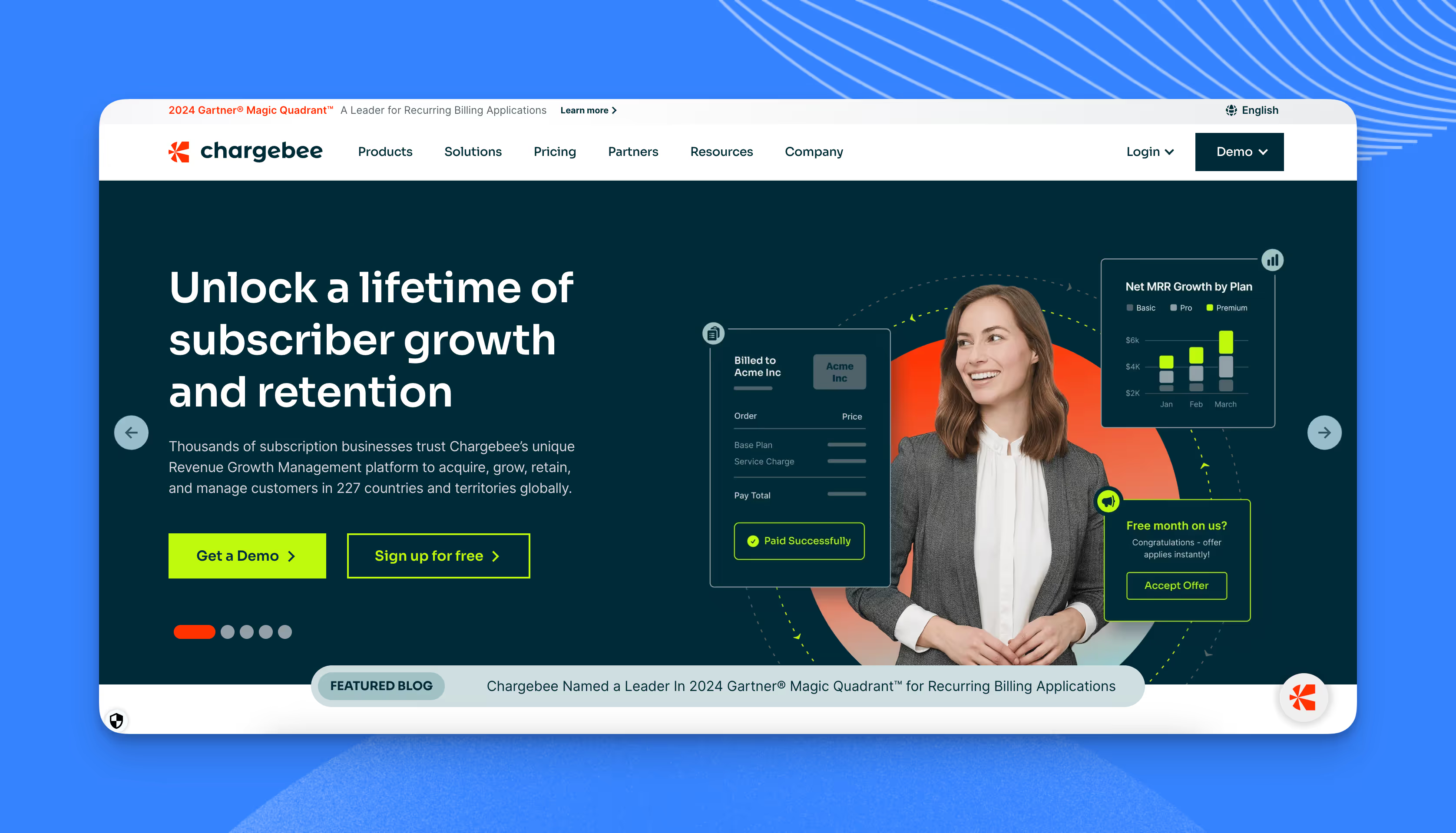
Chargebee is a billing engine primarily geared towards SaaS companies to help them manage recurring billing and subscription models. It offers a set of features for revenue recognition and metered billing, but its offerings can feel overbuilt for businesses with simpler billing needs.
- Pros: It’s got flexible subscription management and robust revenue recognition tools.
- Cons: The pricing structure can become quite expensive as companies scale, starting at $599/month. Customer support, while generally helpful, can be slow to respond according to users.
8. m3ter
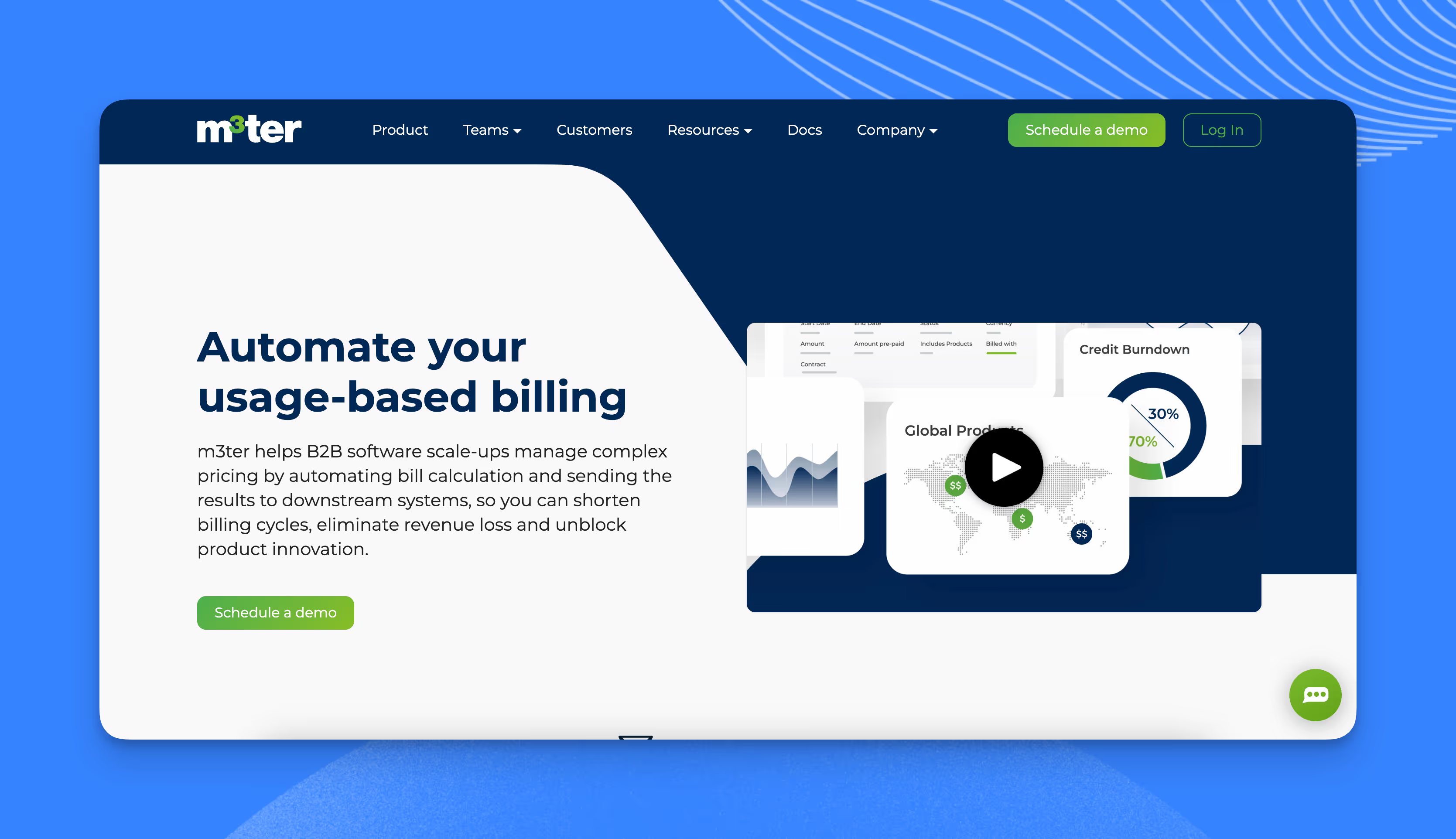
m3ter is a billing platform geared toward companies that need usage-based billing models. While it handles metered billing well, it’s not as versatile when it comes to traditional subscription models, limiting its appeal for businesses that need a diverse set of billing tools.
- Pros: It’s good for companies focused on usage-based billing and real-time data tracking.
- Cons: It lacks support for simpler, non-usage-based models. It’s also over-engineered for smaller businesses that don’t need complex billing tools. Because of that, scaling isn’t as smooth as with other alternatives.
9. Zoho Invoice
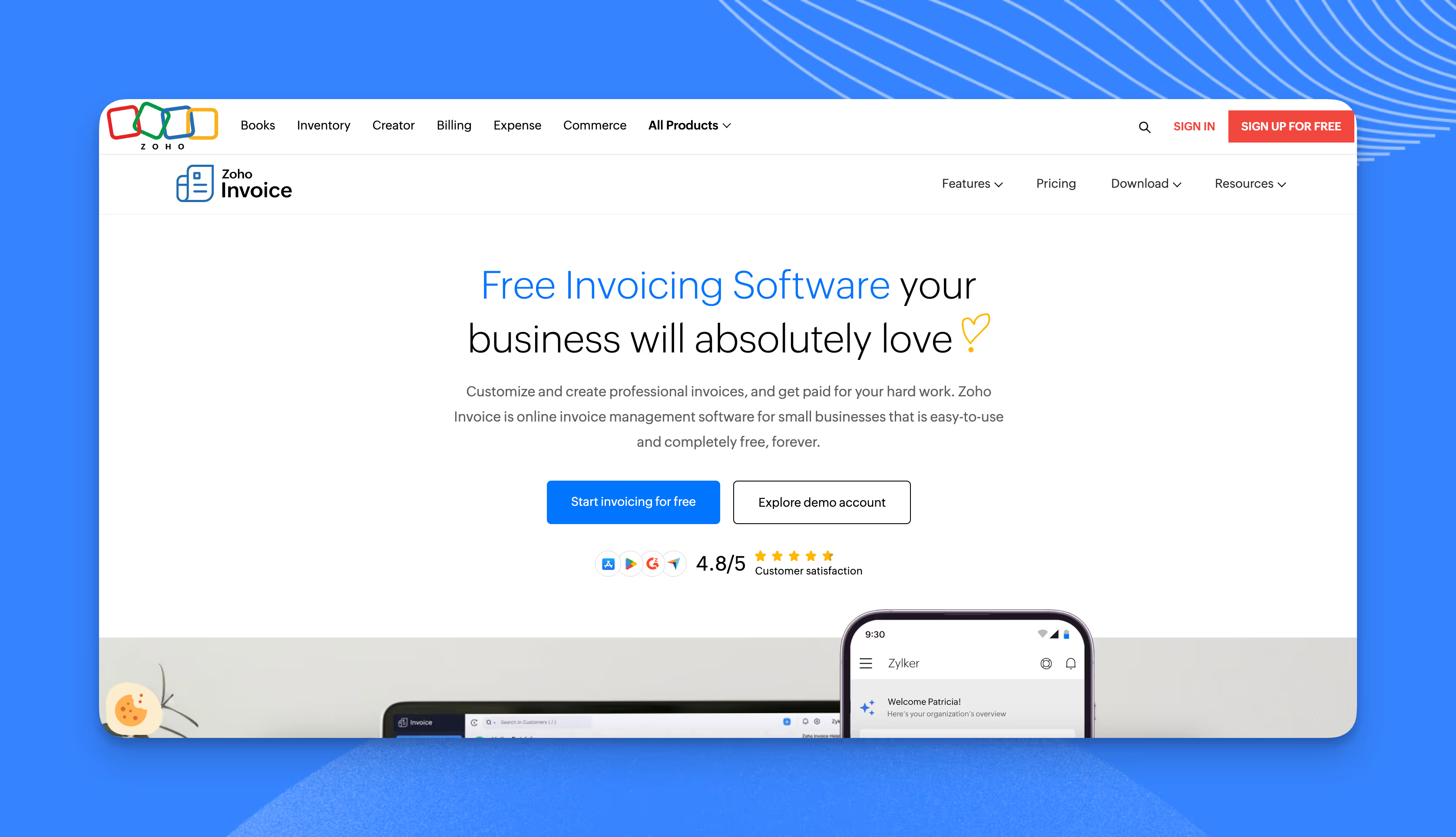
Zoho Invoice is an invoicing platform that offers a free plan with essential invoicing capabilities. Because of this, it’s become an appealing option for budget-conscious startups and freelancers. Its customization options and integration with other Zoho products are also a plus.
- Pros: It offers a free plan and ample customization options. It integrates with other Zoho products.
- Cons: Zoho has limited functionalities on the free plan and no integration with Zoho Inventory. Though it offers basic tiered models, it lacks extensive support for usage-based pricing.
10. BillingPlatform
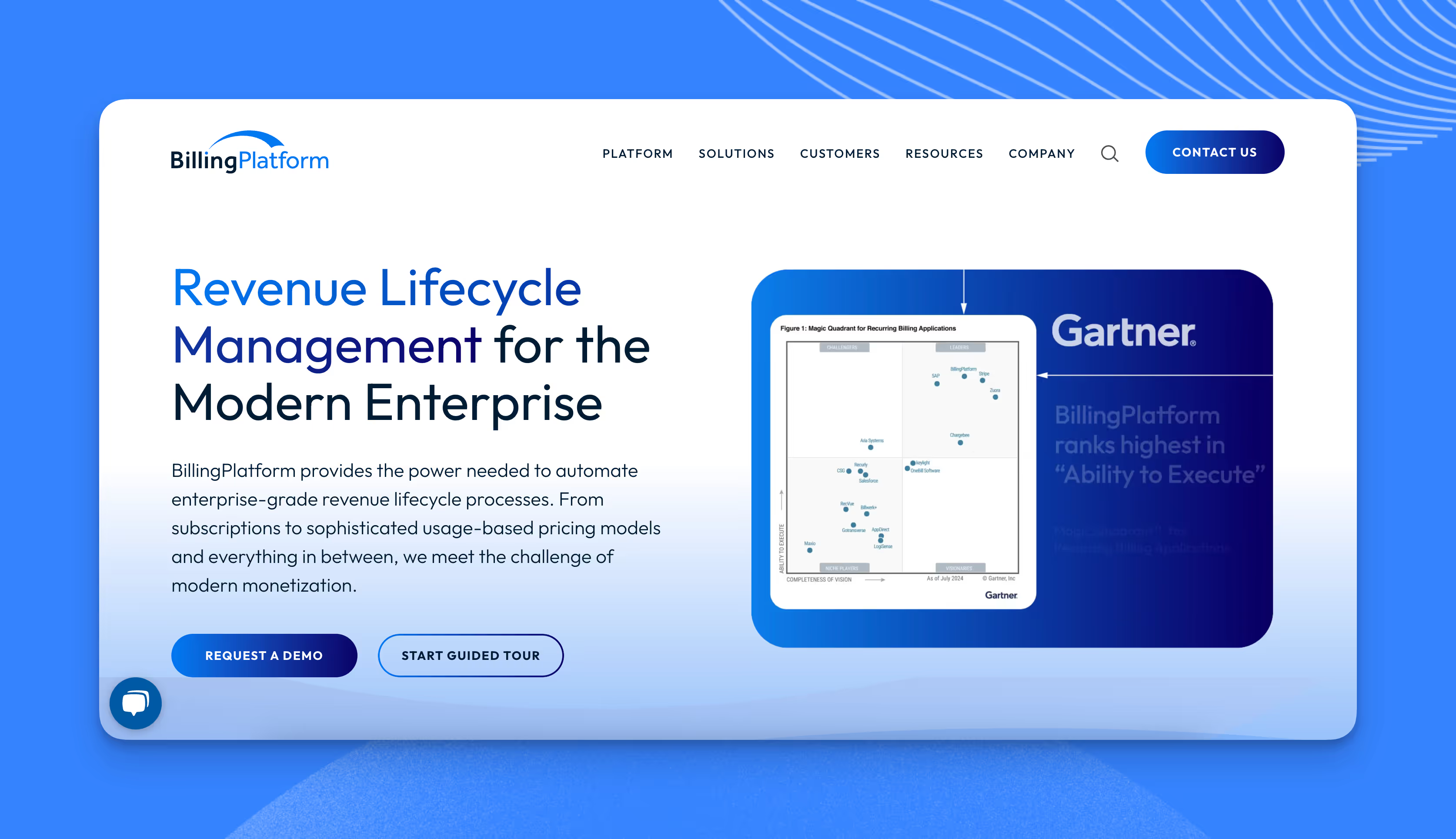
BillingPlatform is an enterprise-grade billing engine designed for organizations with intricate billing needs. It can handle a variety of pricing models, but smaller or growing companies will find its features overwhelming.
- Pros: AI-powered, automates accounts payable, collaboration hub, customizable dashboards.
- Cons: Some users have reported that the platform’s extensive customization options make it difficult to navigate without a deep understanding of the system. Others mentioned the invoicing templates are not as flexible as they would like.
11. Sage Intacct
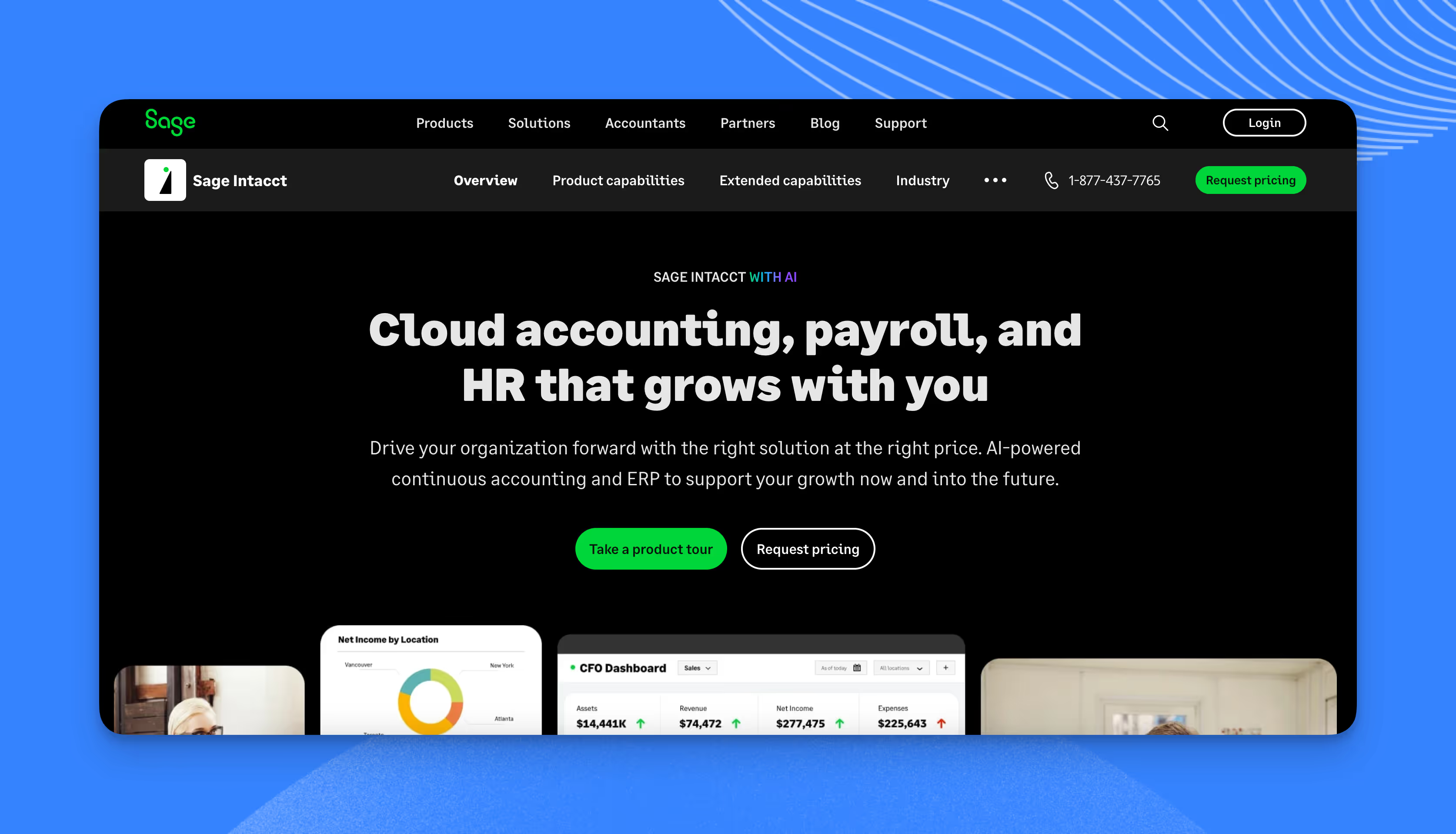
Sage Intacct is a financial management solution that includes billing and invoicing features. Its focus on automation, real-time analytics, and compliance makes it a solid choice for scale-up companies.
- Pros: It’s comprehensive with robust automation and real-time analytics. It’s also compliance-focused.
- Cons: This service has a higher price point and might not be suitable for early-stage startups.
12. BigTime
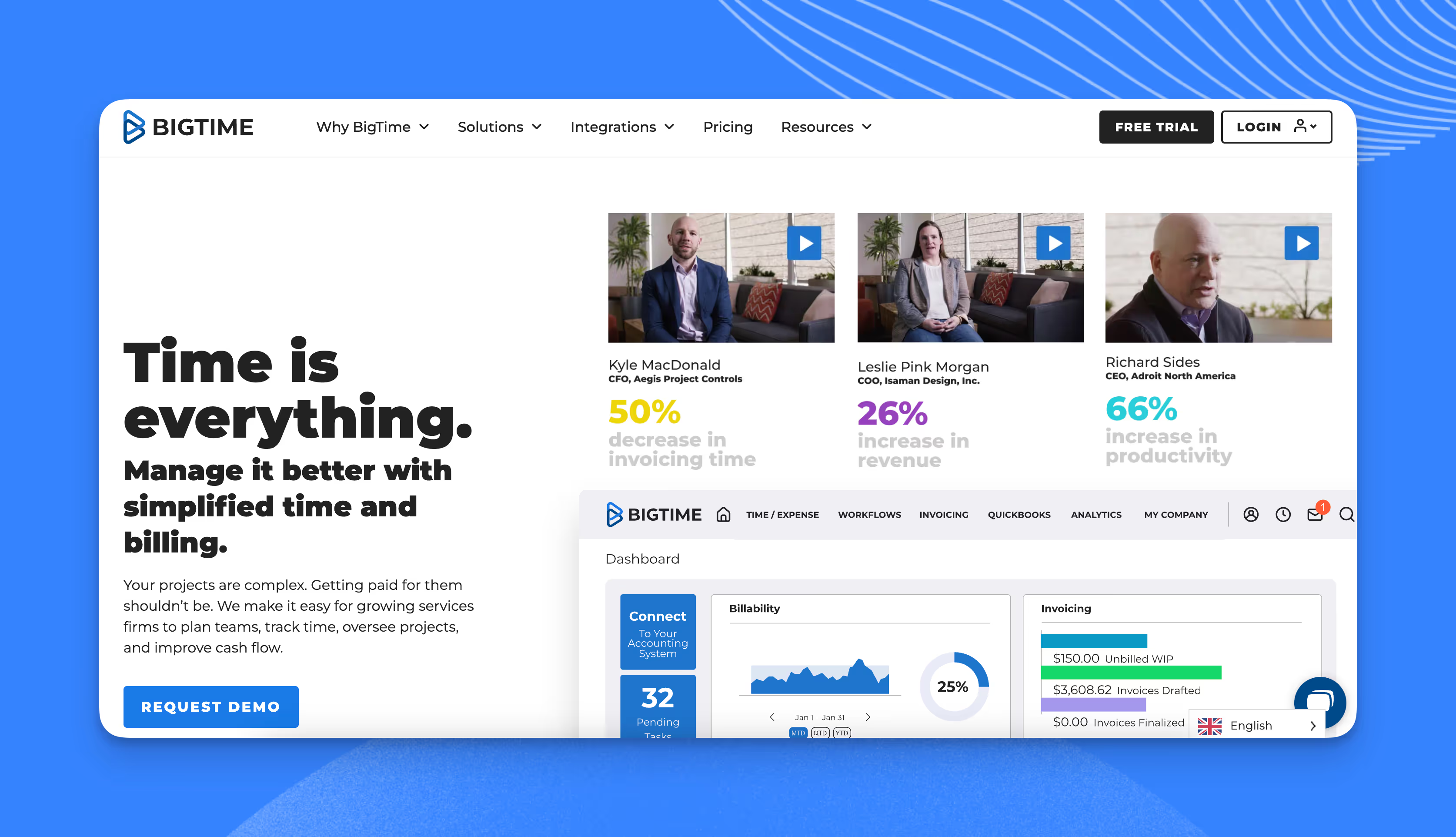
BigTime is a cloud-based billing software tailored to the needs of professional service firms.
- Pros: It offers time tracking and project management features. It also offers flexible billing, automated invoicing, and numerous integrations.
- Cons: Pricing will likely be a consideration for smaller teams since it can be very expensive. Like Zoho Invoice, it lacks support for usage-based pricing models.
13. Bill.com
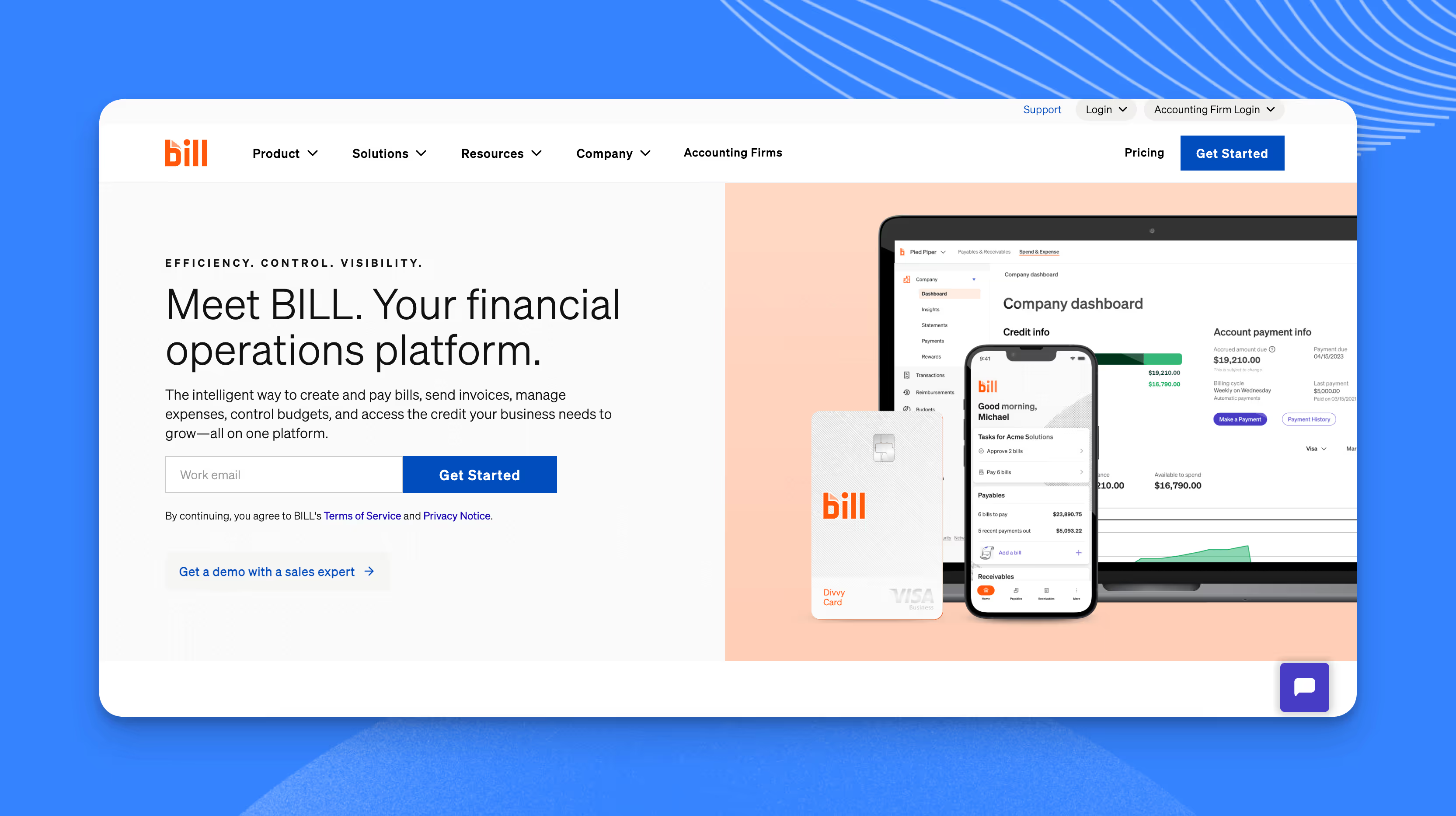
Bill.com is a platform focused on automating accounts payable and receivable processes. It basically allows businesses to pay and get paid faster.
- Pros: It automates AP/AR, integrates with accounting software, and offers customizable invoices.
- Cons: Like with BigTime, pricing might be a factor for cost-conscious startups. It does not support usage-based pricing.
14. Wave
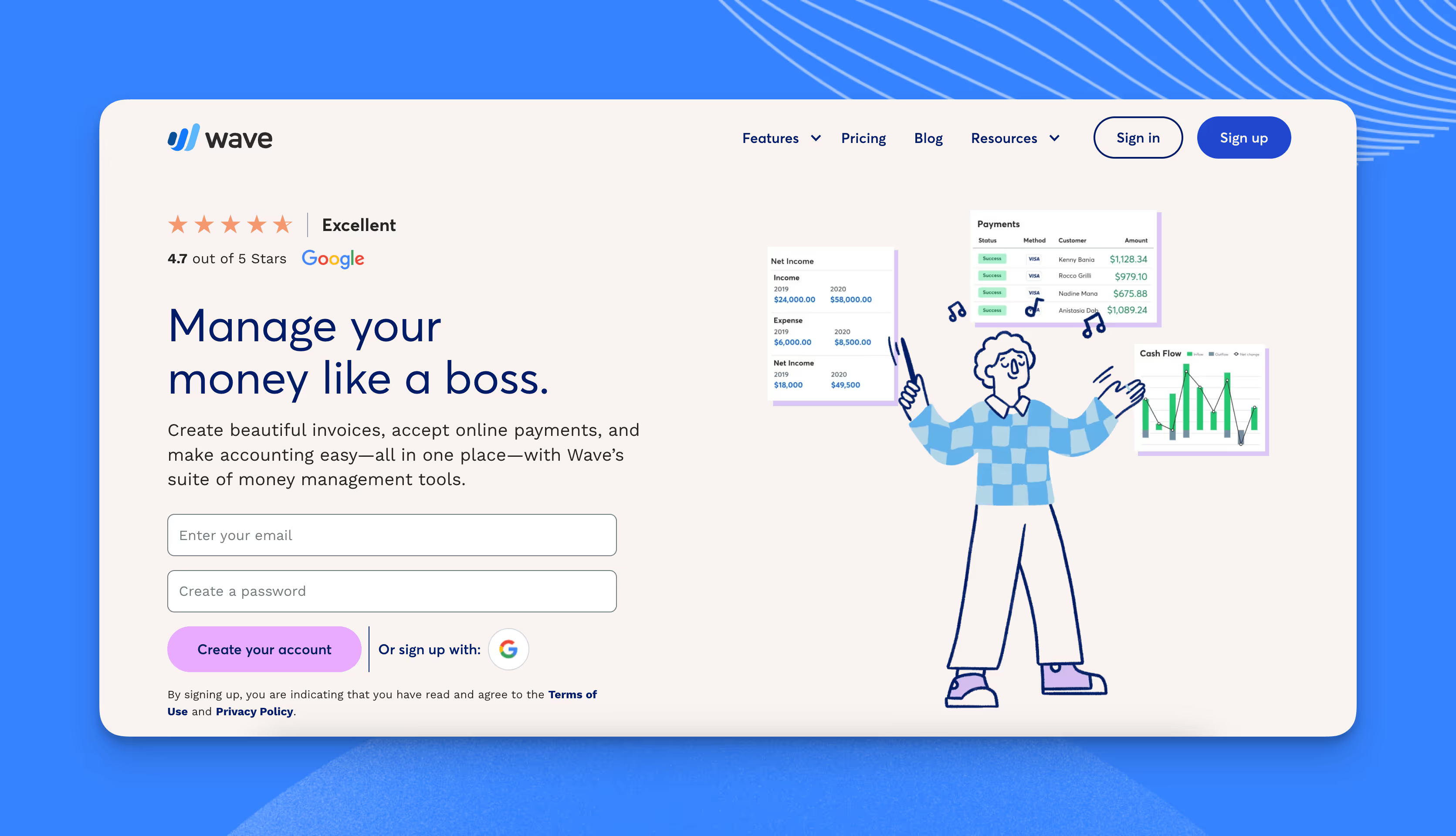
Wave is an accounting and invoicing software. It offers a free plan that includes both accounting and invoicing features. Because of this, it's an attractive option for startups and freelancers on a tight budget.
- Pros: It’s got a free plan. It’s user-friendly and good for beginners.
- Cons: Overall, it offers limited features, and there are high transaction fees for online payments.
15. Melio
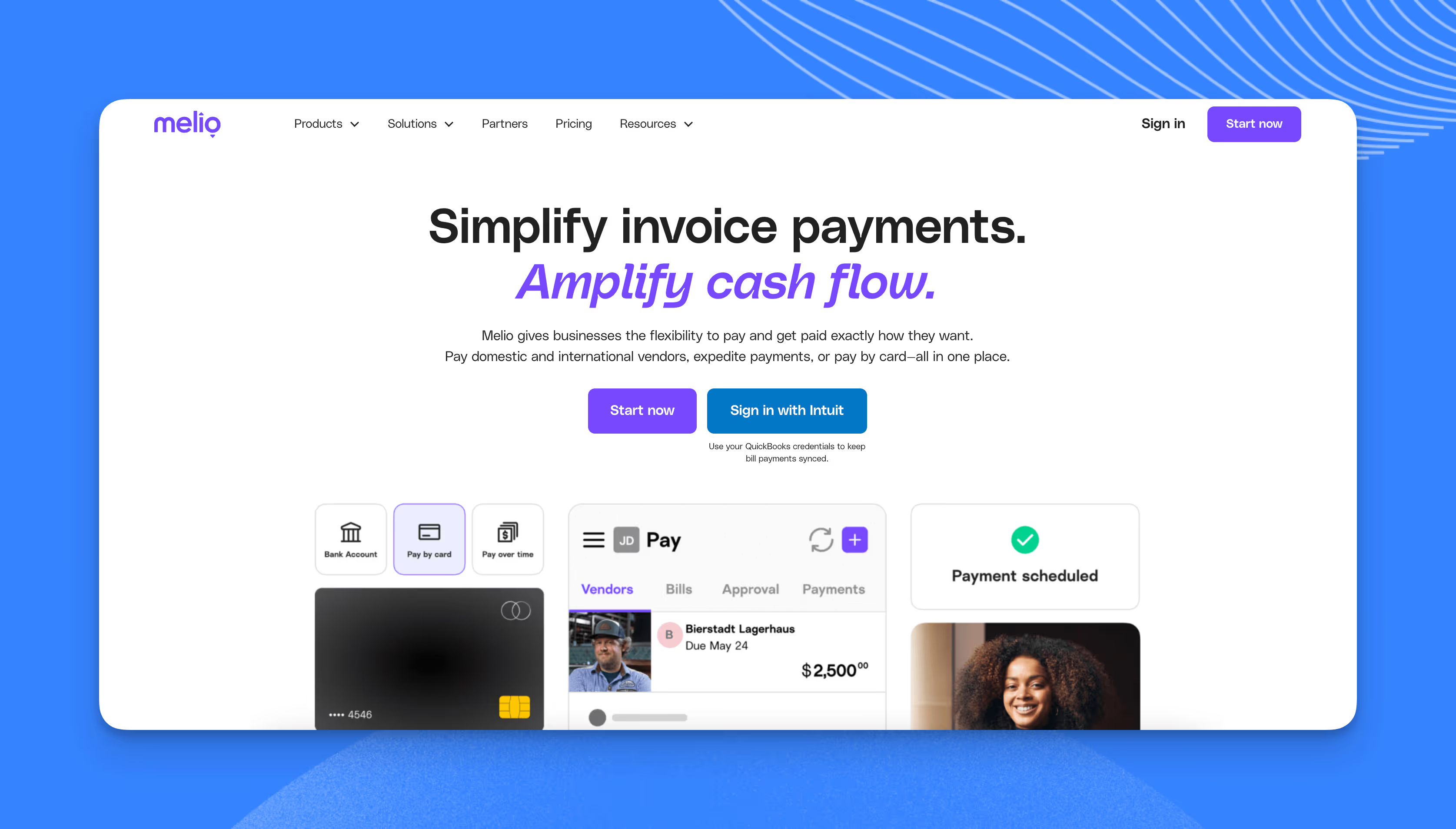
Melio is an accounts payable solution that allows businesses to receive payments via credit card or ACH bank transfer. This makes it a cost-effective choice for managing accounts payable.
- Pros: It offers a free plan and flexible payment options. It integrates with accounting software and is secure.
- Cons: Like Wave, it’s got limited features and high transaction fees. Plus, it doesn’t include usage-based pricing.
16. Square Invoices
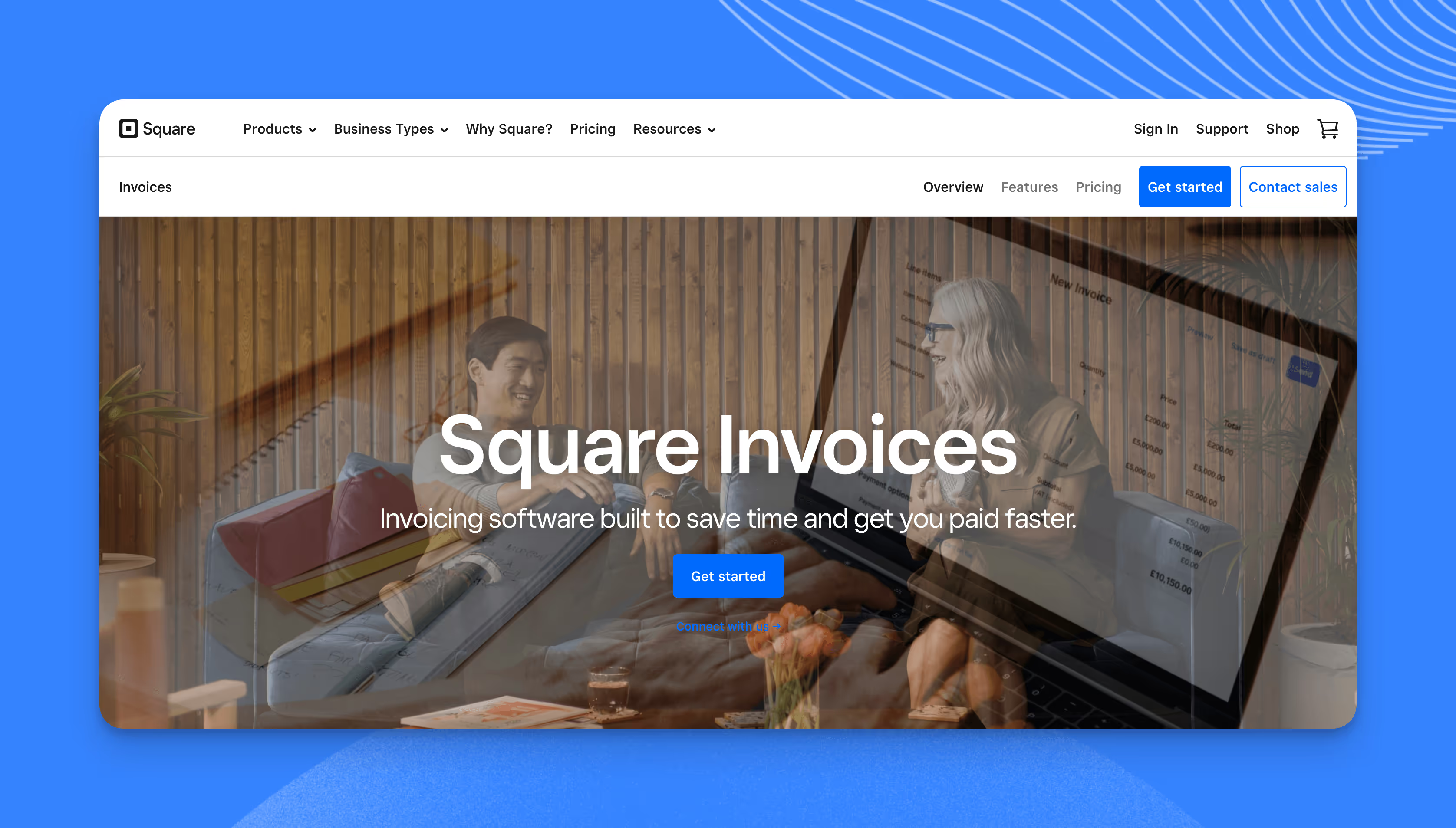
Square Invoices is an invoicing platform that offers a free plan with unlimited estimates and invoices. This setup makes it a convenient option for businesses already using Square's POS system and for those who are just launching their businesses.
- Pros: It offers unlimited invoices; it’s user-friendly, and it integrates with the Square ecosystem.
- Cons: People have limited invoice customizations on the free plan. Additional costs for advanced features are expensive. No support for usage-based pricing.
Next steps: Use Orb’s billing platform for simplified and flexible pricing
Orb is the done-for-you billing engine for hybrid and usage-based pricing built for developers and finance teams. Orb ingests product usage data at a massive scale, speeds up new product launches, and provides detailed financial reporting. When you want to future-proof your business pricing system and scale up faster, Orb delivers.
Ready to give Orb a try? Schedule a free demo and discover why Orb is your go-to billing platform through hands-on experience.



